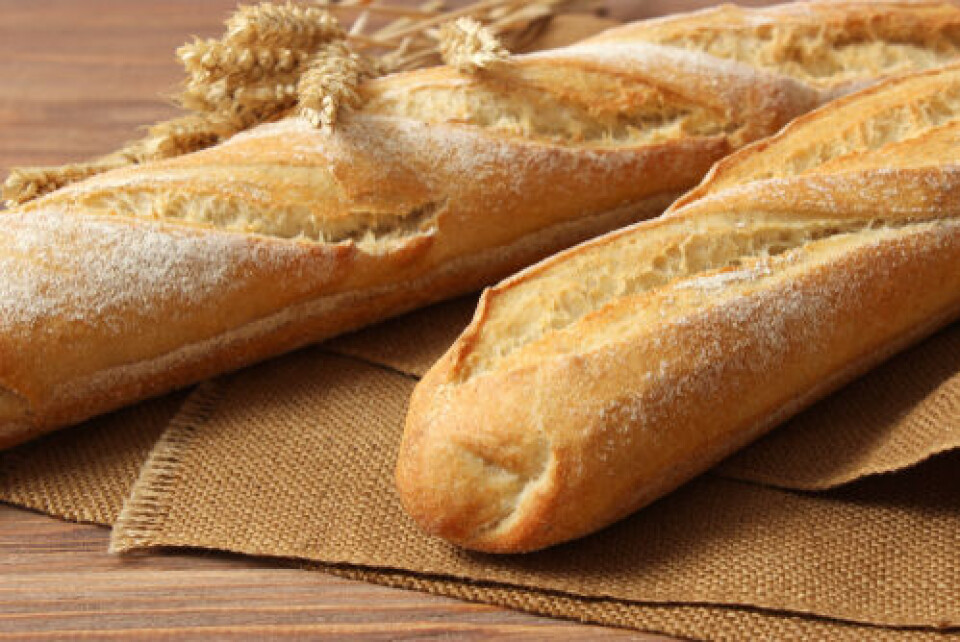-
How France looks after its historical treasures
Emmanuel Pénicaut, director of collections at Mobilier national, explains the organisation’s vital role
-
English-language poets in France showcased in new anthology
29 poets from a stanza group worked together on the collection
-
Pete Doherty’s new song is ode to Normandy (and making Calvados)
The track is inspired by the reformed rocker’s French home
French baguette-making practices added to Unesco intangible heritage
The artisanal techniques are joined on the list by the bear festivities of Pyrenean villages in France and Andorra

Unesco has recognised the artisanal savoir-faire involved in producing French baguettes by adding the practice to its list of intangible cultural heritage.
🔴 BREAKING
— UNESCO 🏛️ #Education #Sciences #Culture 🇺🇳 (@UNESCO) November 30, 2022
New inscription on the #IntangibleHeritage List: Artisanal know-how and culture of baguette bread.
Bravo #France 🇫🇷!
ℹ️ https://t.co/n5nd2IfvLJ #LivingHeritage pic.twitter.com/MINHjuVffK
Baguette-making joins other cultural techniques and customs including the Japanese Furyu-odori ritual dances, the light rum masters of Cuba, and traditional tea processing methods in China.
Another tradition linked to France which has been recognised by Unesco this year are the bear festivities in the Pyrenees, which take place every winter across five villages in France and Andorra.
During the event, young men dress up as bears and run through the streets trying to catch participants. The festivities are punctuated by dances, speeches in Catalan and music.
🔴 BREAKING
— UNESCO 🏛️ #Education #Sciences #Culture 🇺🇳 (@UNESCO) November 29, 2022
New inscription on the #IntangibleHeritage List: Bear festivities in the Pyrenees.
Congratulations #Andorra 🇦🇩 and #France 🇫🇷!
ℹ️ https://t.co/n5nd2IfvLJ #LivingHeritage pic.twitter.com/mOA5rbfTSA
Other French traditions honoured by the status include Aubusson tapestry-making – which was added in 2009 – the ‘gastronomic meal of the French’ and the Breton traditional festival Fest Noz, which involves dancing and acoustic music, and was added in 2012.
The decision was announced this morning (November 30) on Twitter.
What is intangible heritage?
Unesco’s intangible heritage list honours “living culture” in which “communities” are represented rather than objects, Unesco’s Ernesto Ottone told AFP.
In this way, the intangible heritage can belong simultaneously to several countries.
The Convention for the Safeguarding of the Intangible Cultural Heritage was adopted in 2003, and is dedicated to safeguarding these “human treasures”. There are currently 530 practices on the list, including 72 needing urgent protection.
"Intangible cultural heritage, transmitted from generation to generation, is constantly recreated by communities and groups in response to their environment, their interaction with nature and their history, and provides them with a sense of identity and continuity, thus promoting respect for cultural diversity and human creativity," the convention states.
Unesco’s cultural heritage committee has been studying 56 proposed additions to its intangible heritage list since Monday, during meetings in Morocco.
Alongside baguettes, the committee has been considering the fêtes foraines (travelling funfairs) of France and Belgium and the culture surrounding them.
A few hours before it was announced the positive decision for baguette-making, Dominique Anract, the president of the Confédération nationale de la boulangerie-pâtisserie française said that he was “very optimistic” about the result.
He had previously said that honouring baguette-making practices would “lend an international dimension to the baguette [...] It could therefore show young people that [being a baker] is a wonderful career.”
Related articles
French baguette-baking considered for Unesco intangible heritage list
RECIPES: bake a French baguette or sweet potato bread like a master
Baguette, petits pains: Seven French expressions to do with bread
























